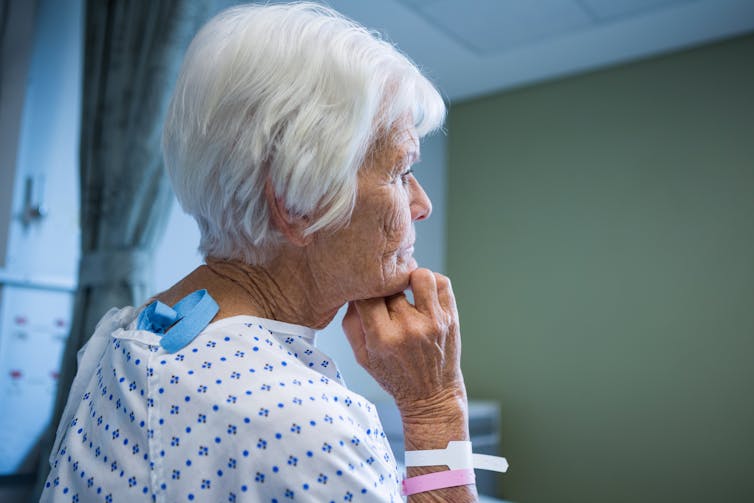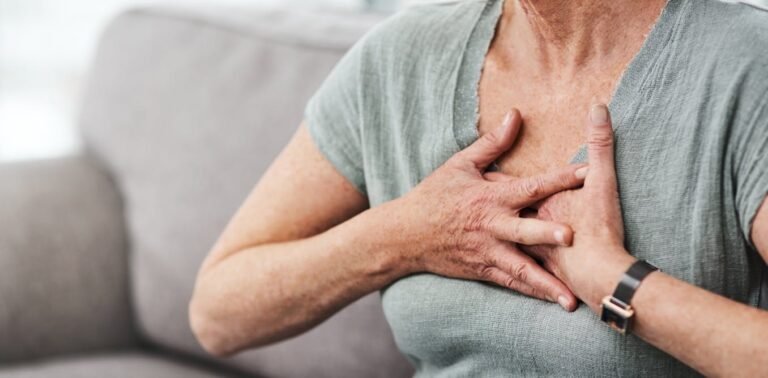Intimate partner violence (IPV) is a global gender epidemic that disproportionately affects women. global, 25-50 percent of women report abuse in a personal relationship and two out of three victims of IPV are women.
Although both women and men experience abuse at the hands of their partners, women experience disproportionately more severe abuse and women and girls are more likely to be killed by an intimate partner than any other member of society.
The many faces of IPV
There are many forms of IPV, including sexual, psychological, financial and physical abuse. Injuries related to physical violence and the effects of abuse on mental health are generally known. Women commonly report physical symptoms such as chronic pain, sleep disturbances, and gastrointestinal problems. These health consequences linger after abuse it is over and may not become apparent until years later.
Among the common but lesser known consequences of IPV are a increased risk for cardiovascular disease.
Cardiovascular disease is a leading cause of death for men and women. Abuse survivors of both sexes have increased rates of cardiovascular disease, but the the increase is greater in women.
Despite the link between IPV and cardiovascular disease in women, this relationship is not well known, even among health professionals.
Factors leading to cardiac risks in IPV survivors
(Shutterstock)
Common mental health issues in abuse survivors — including depression, anxiety and PTSD — are known risk factors for cardiovascular disease. However, these conditions are associated with cardiovascular disease in both women and men, while many of the cardiovascular consequences of IPV are specifically associated with women. Emerging data suggest that biological response to mental health stressors may be more pronounced in women, a possible explanation for gender differences in cardiovascular disease after abuse.
Pain is also a trigger for cardiovascular disease: people with chronic pain have rates of cardiovascular disease nearly double the average. IPV is a leading cause of physical injury for women and women who experience violence have double the risk of chronic pain from those who do not.
Physical injuries related to violence occur in both sexes, but studies generally find that female victims of abuse are more likely by men to suffer bodily harm and that they injuries are more severe in female victims.
Women at risk
While any of these consequences of IPV could explain an increase in cardiovascular disease rates and mortality, they need not operate in isolation. Mental health conditions, including anxiety, depression and PTSD, increase in sensitivity to painwhich could exacerbate the increased pain sensitivity in women.
Disparities in medical care may also contribute to the higher cardiovascular mortality rates among abused women. Signs and symptoms of cardiovascular disease may be dismissed or misattributed by both patients and physicians. More than half of women are ignoring the risk for cardiovascular diseasewhich may result in them dismissing symptoms or attributing symptoms to non-cardiovascular problems.
Read more: Dying to be seen: Why women’s risk of heart disease and stroke is still higher than men’s in Canada
Importantly, health care providers may also overlook wider contextual factors around women’s heart health. Sex and gender bias in the assessment and treatment of CVD also results in women not being treated according to guidelines, including delayed and less intensive treatments.
Identifying the cardiovascular risks that abuse victims face is an important step in solving this emerging crisis. Collaborations between social scientists and health professionals are critical to create a team that identifies women at risk; develops strategies to educate victims and professionals about the risks; and implements treatments and interventions to reduce the adverse health consequences of IPV while taking into account the life circumstances of victim.
A key barrier to these plans is the lack of information about the biological changes that lead to IPV-related CVD risk. While associations between pain and mental health with cardiovascular health are well established, shockingly little is known about the changes in the heart that make it more susceptible to disease.
A call to action

(Shutterstock)
The lack of information on the relationship between cardiovascular health and IPV reflects the general knowledge gap in women’s health.
Cardiovascular disease is the leading cause of death for men and women, and yet Most research continues to focus on male experimental animals and patients. The research’s focus on men is troubling because cardiovascular disease is profoundly different between women and men. Investing in women’s health research such as National Research Initiative on Women’s Health in Canada is vital to support the basic science research needed to understand risk mechanisms and unique pathology in women.
The siled nature of research and even medical practice presents other challenges. The systemic effects of IPV—from physical pain to mental health—require a coordinated health care team that addresses the complex interactions among the consequences of abuse. In addition, IPV should be treated as a global public health crisis Expertise from social scientists is needed to inform relevant and reliable health care support for women.
Finally, the systemic issue of sexism in science and medicine; requires addressing it continued gender bias in cardiology and cardiovascular research. This requires greater support from healthcare professionals to better understand and support the heart health of female patients.
At the same time, women must be empowered with the knowledge they need to make independent and informed health care decisions, which requires a significant investment in women’s health research — a bill that is long overdue.
